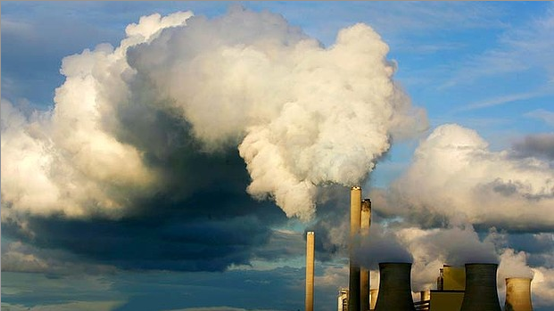We staan aan de vooravond van de start van de UN klimaatconferentie in Parijs. Ondanks de verschrikkelijke aanslagen in de Franse hoofdstad gaat de conferentie gewoon door. Prof. Arthur Mitzman van Concerned Citizens Against Climate Change (4C Climate Change) zond de EBN de volgende bijdrage met een link naar de 4C Climate Change website met uitgebreide achtergrond literatuur.
“We are only days from the UNFCCC summit in Paris, a decisive moment for the climate movement and probably for the planet. Judging by polls of citizen priorities, not many of the planet’s inhabitants realize this. With the exception of ecologically conscious minorities and of those whose awareness of the menace of climate change has been sharpened by direct exposure to its consequences, public opinion seems to be shaped mainly by immediate political concerns. In Europe, the refugee crisis is destabilizing the EU and challenging its humanitarian premises, in the United States and a few other countries, electoral controversies (oncoming or recent) dominate the media: who will rule?
These omnipresent political and social matters nonetheless have a covert relationship to the ecological menace that motivates Concerned Citizens against Climate Change and similar groups. The primary cause of the refugee crisis is the sanguinary revolt in Syria, causing millions to flee to the presumed safety of Europe, This revolt, however, independently of long-standing sectarian antagonisms, was probably triggered by a climate-related drought that forced masses of destitute farmers into urban slums [see our “Breaking News” posting of 7 September]. The elections showing an increasing polarization to the left and the right, away from centrist poliftics in the United States, the UK, Portugal and Poland (after similar shifts in Greece and Hungary, the ousting of conservative, climate skeptical political leaders in Canada and Australia, and the election of a radical leftist as head of the British Labour Party), are all part of a slow-moving breakup of the neoliberal doxa. Long referred to as the “Washington consensus”, this dogma has governed political and economic matters for the last three and a half decades. With its stubborn emphasis on economic growth regardless of social and environmental “collateral damage”, and with its unqualified belief that privatization and deregulation are the preconditions of progress, it has been a serious obstacle to a global agreement to limit carbon emissions.
The catalyst that fractured the consensus was the prolonged recession after the financial collapse of 2008, but the long-term cause was probably the coming to fruition of the “Limits to Growth” scenario prophesized by the Club of Rome in 1973: global resource exhaustion and the impossibility on a planet with limited resources of maintaining a social-economic system and mentality based on the imperative of unlimited growth. The neoliberal utopia premised on the iniquity of government control and the possibility and desirability of infinite exploitation of natural resources promised prosperity for all. But it has created unprecedented economic inequality and severely damaged the planet’s ecology, forcing millions to suffer the reality of global warming.
In this context, a lurch of political systems to right and left is occurring. The right offers frightened masses refuge in the nationalist and identitarian shibboleths that see otherness as threatening. The left garners new support for parties and movements denouncing both economic inequality and the harsh austerity prescribed by neoliberalism as the only road out of recession. While the rightist political tendencies usually propagate climate skepticism, the leftist ones often combine ecological understanding with opposition to neoliberal austerity programs. (For example, the Dutch Green Left Party, whose new leader – Jesse Klaver – recently condemned the prevailing “economism” of the governing coalition of conservative liberals and Social Democrats in the name of justice, sustainability and compassion.)
Given this larger framework, there are indications that, in contrast to the 2009 conference in Copenhagen, Paris may be a fruitful turning point: China and the United States now seem to be working together on the issue; there is a new determination by many major players, including the French hosts as well as U.S. Secretary of State Kerry, not to allow Paris to end in the same deadlock as Copenhagen; there are the warnings of prominent economic and financial spokespeople that failure to pull out of carbon investment now creates the danger of a recession when carbon production and use become severely restricted and the stock bubble bursts. Moreover, the carbon energy world itself seems to be open now to the necessity of a transformation to renewables or, at least, natural gas as transition fuel. (On these last two points, see the reports in our article list under “V – BIG CARBON ENERGY COMPANIES” etc.
Nonetheless, judging by the voluntary proposals so far submitted by governments to the UN’s climate organization (UNFCCC), the average global temperature by the end of this century is likely to have risen by 3°C, exceeding the previously agreed temperature rise limit of 2°C by more than 50%. And that on the rather shaky premise that all major countries will live up to their promises. The consequences of inaction are enormous. The Arabian Gulf area, for example, home to several states that have until now blocked international agreement, will face temperatures in which human life becomes impossible. (See ”Extreme heatwaves could push Gulf climate beyond human endurance, study shows”
Meanwhile, the arrival of a new El Niño has ended the near-decade of slowing down of the air surface warming increase, and the bad news that was predicted for a decade seems to be happening now. (See “It’s worse than we thought. Climate catastrophes have begun, and earlier than expected” – 13 August 2015, and “Giant El Niño makes August 2015 hottest ever” – 15 September 2015) For numerous other examples, including some evidence relating warming-induced drought and the middle eastern refugee crisis, see rubric IV in our article list.
This bad news is mitigated perhaps by the likelihood that UN reviews of goals agreed to in Paris during the next decade, as extreme weather affects increasing millions, will raise the level of ambition. There is moreover the possibility that the steadily decreasing cost of wind and solar energy will put the carbon industry out of business in time for us to avoid the most catastrophic consequences of climate change. (Section VII in our article list is on the mostly encouraging news about renewables.)
Apart from these encouraging developments, in the five months since our last newsletter the prospects for the struggle to protect life on the planet have improved in two major respects.
On the one hand, there is increasing awareness among world leaders that the problem requires urgent attention and a willingness to contemplate radical change. Nowhere has this willingness been more evident than in the last place one might earlier have expected it, the Vatican.
Pope Francis set the tone last summer with a brilliant and incisive Encyclical, Laudato sí: On Care for our Common Home (see in our article list II THE POPE JOINS THE CLIMATE MOVEMENT). Invoking the authority of his predecessors as well as of numerous bishops’ conferences, Francis spoke not just to Catholics but to all humankind in demanding climate justice for the poor, who are the most vulnerable to the heat waves, storms and floods accompanying warming, and for future generations. A council of Roman Catholic bishops in late October used the encyclical to propose a ten-point program for the Paris conference that called for full decarbonisation of the planet by 2050 and a limit to warming of 1.5 degrees centigrade.
On the other hand, there is abundant movement from below, globally and locally. Pressure has mounted against carbon subsidies and investments (the divestment campaign), indeed against continuation of the coal industry itself. There has also been direct action, such as the kayaktivists in the harbor of Seattle who tried to block Shell’s Arctic-bound oil rigs or the October 26 occupation of a UK coal mine. In the Netherlands, NGO Urgenda won a court case against the government for failing to live up to climate commitments.
Indeed, the planned popular support for and NGO participation in the Paris climate conference is large (See for example this web graphic sent us by a coordinator of the French climate action network []). For those willing to back up their ideas with their bodies, demonstrations in support of the Paris climate summit are being coordinated internationally by Avaaz [http://] and 350.org
Finally, for the Dutch recipients of our newsletter, there are two major opportunities to give active support to the Paris conference. A message from Liset Meddens, coordinator of Fossielvrij.nl informs us: “On the 29th of November Fossielvrij NL, together with Greenpeace, Milieudefensie, Oxfam and many other NGO’s, is organising the Klimaatparade in Amsterdam. The overall theme/message will be “Wij zijn niet te stoppen, klimaatverandering wel”. Both Milieudefensie [Friends of the Earth] and the anti-nuclear NGO WISE are organizing Dutch contingents to the Paris conference.
On to Paris!
See: The 4C Climate Change News list http://www.stopwarming.eu/?news&category=1
See also: European Commission on Climate Change

